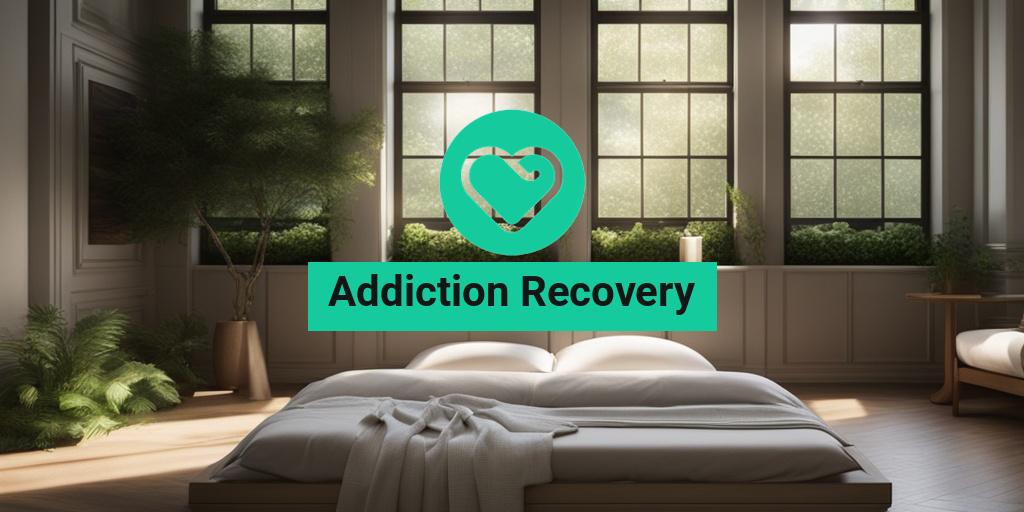“`html
What Is Addiction Recovery?
Addiction recovery is a multifaceted process aimed at overcoming substance use disorders and achieving a healthier, more fulfilling life. It involves not just the cessation of substance use but also the development of coping strategies, emotional regulation, and lifestyle changes that support long-term sobriety. The journey of addiction recovery is unique for each individual, shaped by personal experiences, the type of addiction, and the support systems available.
The Importance of Understanding Addiction Recovery
Understanding addiction recovery is crucial for both those struggling with addiction and their loved ones. It helps to demystify the process and provides a framework for what to expect. Recovery is not merely about quitting drugs or alcohol; it encompasses a holistic approach to mental, emotional, and physical well-being.
Key Components of Addiction Recovery
- Detoxification: The initial phase where the body clears itself of substances. This can be uncomfortable and may require medical supervision.
- Therapy and Counseling: Engaging in individual or group therapy helps address the underlying issues related to addiction.
- Support Groups: Programs like Alcoholics Anonymous (AA) or Narcotics Anonymous (NA) provide community support and shared experiences.
- Aftercare: Ongoing support post-treatment is essential to prevent relapse and maintain sobriety.
Addiction Recovery Stages
The journey of addiction recovery can be broken down into several stages, each with its own challenges and milestones. Understanding these stages can help individuals navigate their recovery journey more effectively.
1. Precontemplation
In this initial stage, individuals may not recognize that they have a problem. They might be in denial about the impact of their substance use on their lives and the lives of those around them. This stage is often characterized by a lack of awareness and resistance to change.
2. Contemplation
During the contemplation stage, individuals begin to acknowledge their addiction and consider the possibility of change. They may weigh the pros and cons of their substance use and start to think about the consequences of their actions. This stage is crucial for self-reflection and motivation.
3. Preparation
In the preparation stage, individuals are ready to take action. They may seek help from addiction recovery centers, therapists, or support groups. This stage involves planning for treatment and setting goals for recovery.
4. Action
The action stage is where individuals actively engage in recovery efforts. This may include attending therapy sessions, participating in support groups, and making lifestyle changes. It’s a time of significant transformation and commitment to sobriety.
5. Maintenance
Once individuals have achieved sobriety, the maintenance stage focuses on sustaining recovery. This involves ongoing support, coping strategies, and lifestyle adjustments to prevent relapse. Individuals may continue attending support groups and therapy to reinforce their commitment to a sober life.
6. Relapse (if applicable)
Relapse can occur at any stage of recovery and is often viewed as a setback rather than a failure. It’s important to understand that relapse is a common part of the recovery process. Those who experience a relapse can return to the action or maintenance stages with the right support and strategies in place.
Conclusion
Addiction recovery is a complex journey that requires patience, support, and dedication. By understanding the stages of recovery, individuals can better prepare themselves for the challenges ahead. Resources like Yesil Health AI can provide valuable information and support throughout this process. Remember, recovery is possible, and seeking help is the first step towards a healthier, happier life. 🌟
“`

“`html
Addiction Recovery Symptoms
Understanding the symptoms of addiction recovery is crucial for both individuals on the journey and their loved ones. Recognizing these symptoms can help in identifying the need for professional help and support. Here are some common symptoms that may arise during the recovery process:
Physical Symptoms
Physical symptoms can vary widely depending on the substance involved and the individual’s health. Some common physical symptoms include:
- Withdrawal Symptoms: These can include nausea, sweating, shaking, and fatigue as the body adjusts to the absence of the substance.
- Changes in Appetite: Individuals may experience increased or decreased appetite, leading to weight fluctuations.
- Sleep Disturbances: Insomnia or excessive sleeping can occur as the body tries to find a new balance.
Emotional and Psychological Symptoms
Recovery is not just a physical journey; it also involves significant emotional and psychological changes. Symptoms may include:
- Depression and Anxiety: Many individuals face feelings of sadness or anxiety as they navigate their recovery journey.
- Mood Swings: Emotional instability can be common, with individuals experiencing highs and lows.
- Cravings: Strong urges to use the substance can persist, making it essential to have coping strategies in place.
Social Symptoms
Social interactions can also be affected during addiction recovery. Some symptoms to watch for include:
- Isolation: Individuals may withdraw from friends and family, feeling misunderstood or ashamed.
- Changes in Relationships: Recovery can strain relationships, as loved ones may struggle to understand the changes.
- Accountability Issues: Finding a support system is vital, as accountability can help maintain sobriety.
Recognizing these symptoms is the first step toward effective addiction recovery. It’s important to seek help from professionals who can provide guidance and support tailored to individual needs. 🌱
Addiction Recovery Causes
Understanding the causes of addiction is essential for effective recovery. Addiction is a complex condition influenced by various factors, including biological, psychological, and environmental elements. Here are some of the primary causes of addiction:
Biological Factors
Genetics play a significant role in addiction. Research indicates that:
- Family History: Individuals with a family history of addiction are at a higher risk of developing similar issues.
- Brain Chemistry: Certain substances can alter brain chemistry, leading to dependency and addiction.
Psychological Factors
Many individuals turn to substances as a way to cope with underlying psychological issues. Common psychological causes include:
- Trauma: Experiencing traumatic events can lead individuals to seek relief through substance use.
- Mental Health Disorders: Conditions such as depression, anxiety, and PTSD are often linked to substance abuse.
Environmental Factors
The environment in which a person lives can significantly impact their likelihood of developing an addiction. Key environmental factors include:
- Peer Pressure: Social circles that normalize substance use can increase the risk of addiction.
- Accessibility: Easy access to drugs or alcohol can lead to experimentation and eventual dependency.
- Stressful Life Events: High-stress situations, such as job loss or relationship issues, can trigger substance use as a coping mechanism.
By understanding these causes, individuals and their support systems can better address the root issues of addiction. This knowledge is vital for creating effective treatment plans and fostering long-term recovery. 🌟
“`

“`html
Addiction Recovery Treatment Options
When it comes to addiction recovery, understanding the various treatment options available is crucial for individuals seeking to reclaim their lives. Each person’s journey is unique, and the right approach can make all the difference. Here, we explore some of the most effective treatment options that cater to different needs and circumstances.
1. Inpatient Rehabilitation Programs
Inpatient rehabilitation programs provide a structured environment where individuals can focus solely on their recovery. These programs typically last from 30 to 90 days and include:
- 24/7 Medical Supervision: Ensures safety during detoxification.
- Therapeutic Activities: Group therapy, individual counseling, and holistic treatments.
- Supportive Community: Living with others who are also in recovery fosters a sense of belonging.
Inpatient programs are particularly beneficial for those with severe addiction issues or co-occurring mental health disorders.
2. Outpatient Treatment Programs
Outpatient treatment allows individuals to maintain their daily responsibilities while receiving care. This flexibility can be ideal for those with strong support systems at home. Key features include:
- Flexible Scheduling: Attend sessions around work or family commitments.
- Variety of Therapies: Options may include cognitive-behavioral therapy (CBT), group therapy, and family therapy.
- Continued Support: Regular check-ins with counselors help maintain accountability.
Outpatient programs are often recommended for those who have completed inpatient treatment or have a less severe addiction.
3. Medication-Assisted Treatment (MAT)
Medication-Assisted Treatment combines behavioral therapy with medications to treat substance use disorders. This approach is particularly effective for opioid and alcohol addiction. Common medications include:
- Buprenorphine: Reduces cravings and withdrawal symptoms.
- Naltrexone: Blocks the effects of opioids and reduces alcohol cravings.
- Acamprosate: Helps maintain abstinence from alcohol.
MAT is often used in conjunction with counseling and support groups to enhance recovery outcomes.
4. Holistic and Alternative Therapies
Many individuals find success in incorporating holistic therapies into their recovery plans. These may include:
- Yoga and Meditation: Promote mindfulness and reduce stress.
- Art and Music Therapy: Provide creative outlets for expression and healing.
- Nutrition Counseling: Focus on rebuilding physical health through proper diet.
These therapies can complement traditional treatment methods and help individuals develop a well-rounded recovery plan.
Addiction Recovery Support Systems
Support systems play a vital role in addiction recovery. They provide encouragement, accountability, and a sense of community, which are essential for long-term success. Here are some key support systems to consider:
1. 12-Step Programs
12-step programs, such as Alcoholics Anonymous (AA) and Narcotics Anonymous (NA), have been foundational in addiction recovery for decades. These programs emphasize:
- Peer Support: Sharing experiences with others who understand the struggle.
- Accountability: Regular meetings help individuals stay committed to their recovery goals.
- Spiritual Growth: Many programs encourage a spiritual component, which can be a source of strength.
These programs are widely available and can be found in most communities.
2. Professional Counseling
Engaging with a licensed therapist or counselor can provide personalized support tailored to individual needs. Benefits include:
- Individualized Treatment Plans: Address specific issues related to addiction.
- Skill Development: Learn coping strategies and life skills to manage triggers.
- Safe Space: A confidential environment to discuss feelings and challenges.
Professional counseling can be a critical component of a comprehensive recovery strategy.
3. Family and Friends Support
Having a strong support network of family and friends can significantly impact recovery. Here’s how loved ones can help:
- Encouragement: Positive reinforcement can boost motivation.
- Understanding: Educating themselves about addiction helps them provide better support.
- Participation in Recovery: Involving family in therapy sessions can strengthen relationships.
Open communication and understanding from loved ones can create a nurturing environment for recovery.
4. Online Support Groups
For those who may not have access to local support, online groups offer a valuable alternative. These platforms provide:
- Accessibility: Join from anywhere, making it easier to connect.
- Anonymity: Share experiences without fear of judgment.
- Diverse Perspectives: Learn from individuals with different backgrounds and experiences.
Online support groups can be a lifeline for many in recovery, especially during challenging times.
“`

“`html
Addiction Recovery Relapse Prevention
Relapse is often seen as a setback in the journey of Addiction Recovery, but understanding how to prevent it can empower individuals to maintain their sobriety. Relapse prevention is a crucial component of recovery, focusing on strategies and techniques that help individuals avoid returning to substance use.
Understanding Relapse
Relapse is not just a single event; it is a process that can begin long before an individual actually returns to substance use. Recognizing the stages of relapse can help in developing effective prevention strategies:
- Emotional Relapse: This stage involves feelings of stress, anxiety, or depression without any thoughts of using substances. Individuals may isolate themselves or neglect self-care.
- mental Relapse: At this stage, individuals may start to think about using again, romanticizing past substance use, or even planning how to obtain substances.
- Physical Relapse: This is the final stage where the individual actually returns to substance use.
Effective Relapse Prevention Strategies
Implementing effective strategies can significantly reduce the risk of relapse. Here are some key approaches:
- Develop a Support Network: Surrounding yourself with supportive friends, family, and peers who understand your journey can provide encouragement and accountability. Consider joining support groups like Alcoholics Anonymous (AA) or Narcotics Anonymous (NA).
- Identify Triggers: Recognizing situations, people, or emotions that trigger cravings is essential. Keeping a journal can help track these triggers and develop coping strategies.
- Practice Self-Care: Engaging in regular physical activity, maintaining a healthy diet, and ensuring adequate sleep can improve overall well-being and resilience against cravings.
- Utilize Coping Skills: Techniques such as mindfulness, meditation, and deep breathing can help manage stress and anxiety, reducing the likelihood of relapse.
- Set Realistic Goals: Establishing achievable short-term and long-term goals can provide motivation and a sense of accomplishment in your recovery journey.
Seeking Professional Help
Sometimes, the journey of Addiction Recovery requires professional intervention. Therapists and counselors can provide tailored strategies and support to help individuals navigate their recovery. Consider exploring local Addiction Recovery Services or centers that specialize in relapse prevention.
Addiction Recovery Success Stories
Success stories in Addiction Recovery serve as powerful reminders that recovery is possible. They inspire hope and demonstrate that individuals can overcome their struggles with addiction. Here are a few remarkable stories that highlight the resilience of the human spirit:
Transformative Journeys
Many individuals have shared their journeys from addiction to recovery, showcasing the various paths one can take. Here are some notable examples:
- John’s Journey: After battling opioid addiction for years, John found solace in a local recovery center. Through therapy and support groups, he learned to cope with his triggers and rebuild his life. Today, he is a motivational speaker, sharing his story to inspire others.
- Maria’s Story: Maria struggled with alcohol addiction for over a decade. After hitting rock bottom, she sought help and entered a rehabilitation program. With the support of her family and newfound friends in recovery, she now advocates for mental health awareness and helps others find their path to sobriety.
- David’s Triumph: David faced a long battle with substance abuse, but after several attempts at recovery, he finally found a program that resonated with him. He credits his success to the community he built during his recovery and now works as a counselor, helping others navigate their own journeys.
Lessons Learned from Success Stories
These success stories highlight several key lessons:
- Community Matters: Building a support network is crucial. Whether through friends, family, or support groups, having people who understand your journey can make a significant difference.
- Persistence is Key: Recovery is often not a straight path. Many individuals experience setbacks but learn valuable lessons that contribute to their ultimate success.
- Self-Discovery: The journey of recovery often leads to personal growth and self-discovery. Individuals learn more about themselves, their values, and what truly matters in life.
These stories remind us that while the road to recovery may be challenging, it is also filled with hope, resilience, and the possibility of a brighter future. 🌟
“`

“`html
Frequently Asked Questions about Addiction Recovery
What is Addiction Recovery?
Addiction recovery refers to the process of overcoming addiction to substances or behaviors. It involves various stages, including detoxification, therapy, and ongoing support to maintain sobriety.
What are the different types of Addiction Recovery services available?
There are several types of addiction recovery services available, including:
- Inpatient rehabilitation centers
- Outpatient treatment programs
- Support groups such as Alcoholics Anonymous (AA) or Narcotics Anonymous (NA)
- Therapeutic services, including counseling and cognitive-behavioral therapy
How can I find an Addiction Recovery center near me?
You can find a local addiction recovery center by searching online or contacting local health services. Websites like SAMHSA’s treatment locator can also help you find nearby facilities.
What role do quotes play in Addiction Recovery?
Addiction recovery quotes can serve as inspiration and motivation for individuals on their recovery journey. They often encapsulate the struggles and triumphs of overcoming addiction, providing encouragement during tough times.
Are there specific jobs related to Addiction Recovery?
Yes, there are various addiction recovery jobs available, including:
- Substance abuse counselors
- Rehabilitation therapists
- Support group facilitators
- Case managers for recovery programs
Can tattoos be a part of the Addiction Recovery journey?
Many individuals choose addiction recovery tattoos as a form of self-expression and a reminder of their journey. These tattoos can symbolize strength, resilience, and the commitment to sobriety.
What are some recommended movies about Addiction Recovery?
There are several impactful addiction recovery movies that portray the struggles and successes of recovery. Some notable films include:
- “28 Days”
- “Requiem for a Dream”
- “The Basketball Diaries”
- “A Star is Born”
How does the LDS community approach Addiction Recovery?
The addiction recovery LDS program offers support through faith-based principles, emphasizing spiritual healing alongside traditional recovery methods. Many find strength in community and shared beliefs during their recovery journey.
What should I do if I feel hopeless in my recovery?
If you’re feeling hopeless, it’s crucial to reach out for support. Connecting with a therapist, support group, or trusted friend can provide the encouragement needed to continue your recovery journey. Remember, recovery is a process, and it’s okay to seek help. 🌈
“`




